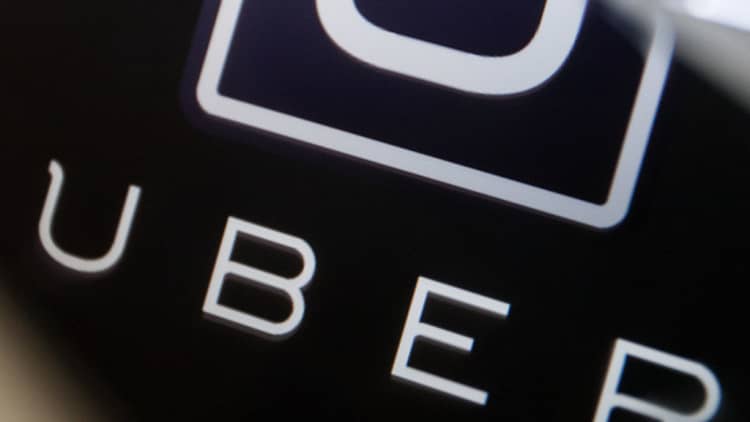The global ridesharing wars took a dramatic turn in December when a handful of companies not named Uber joined forces to try and tame CEO Travis Kalanick's quest for world domination.
Headlining the group were Lyft in the U.S. and Didi Chuxing (then called Didi Kuaidi) in China. Earlier in the year, Didi invested $100 million in Lyft.
John Zimmer, Lyft's president and co-founder, said the consortium, which also included Grab Taxi in Southeast Asia and Ola in India, would provide "the world's best coverage while building upon our shared vision of reconnecting communities through better transportation."
So much for that rosy view.
On Monday, eight months after the alliance was formed, Didi teamed up with the enemy.
Didi agreed to acquire Uber's China unit in a deal that values the company at $35 billion, according to a person familiar with the matter, giving Uber and its shareholders a 20 percent stake in the combined entity. Kalanick will join Didi's board, and Didi founder and Chairman Cheng Wei will pick up an Uber board seat.
The merger presents yet another challenge to Lyft in its battle against the much larger Uber. With a $15 billion cash stockpile and a $68 billion valuation, Uber has been executing a growth campaign unlike any other, relentlessly recruiting drivers with sweet incentives and subsidizing rides to counter price drops by rivals.
By any standard other than Uber, Lyft has been a screaming success, reaching a $5.5 billion valuation in just four years and operating in over 200 U.S. cities and nine in Asia. Uber, however, is all over the world and even spent $2 billion to build its operation in 60 Chinese cities.

Like most U.S. internet companies, Lyft has avoided China. Despite being the world's second-biggest economy and biggest country by population, China has been notoriously difficult to crack, largely because of the government's censorship policies and favoritism towards domestic providers.
Didi controls more than 80 percent of the Chinese market.
Last week, the Chinese cabinet opened up the ride-hailing industry, providing a set of legal written standards for providers to follow. From Lyft's vantage point, it was another boon to Didi because the home team will inevitably get further government support.
"We always believed Didi had a big advantage in China because of the regulatory environment," Alexandra LaManna, a Lyft spokeswoman, said in an e-mailed statement. "The recent policy changes are exactly why we did not invest in the region."
What does the deal mean for the Lyft-Didi agreement? "Over the next few weeks, we will evaluate our partnership with Didi," LaManna said.
Originally, the alliance was intended to have the four companies share local market knowledge, technology and business tools so that a consumer could travel to any of the covered markets and use the same app. That would eliminate many of the language and technical hurdles associated with ridesharing.
Wei called it a "win for the diversity and vitality of the global rideshare industry."
Now that Kalanick is joining Didi's board, it's hard to imagine Lyft wanting to share sensitive and proprietary data with its Chinese partner.
"It does put that partnership in an odd place," said Arun Sundararajan, a professor at New York University's Stern Business School and the author of "The Sharing Economy," published this year.
Sundararajan said he was in China in late June and met with Didi executives in Beijing. At the time, the service that would allow Lyft users to order Didi cars was not yet available, he said.
According to Sundararajan, Lyft's biggest concern with the Didi-Uber deal is that it frees Uber from the burden of burning cash to compete in China and allows it to focus on other markets, namely the U.S.
"The China distraction is over," he said. "It means all the money Uber raised for China is now being freed up from other places."
Meanwhile, Kalanick can work with Didi to make sure his company's equity stake in China gains value and turn his attention to other efforts, like winning in food delivery and investing in logistics, said Hans Tung, a managing partner at venture firm and Didi backer GGV Capital.
"I think it's a shrewd move by Travis to do this," Tung said, in an interview on CNBC. "If there are bigger markets for Uber to fight, why spend so much money to fight the incumbent category leader Didi in China? It doesn't make much strategic sense."
--CNBC's Arjun Kharpal contributed to this report.


